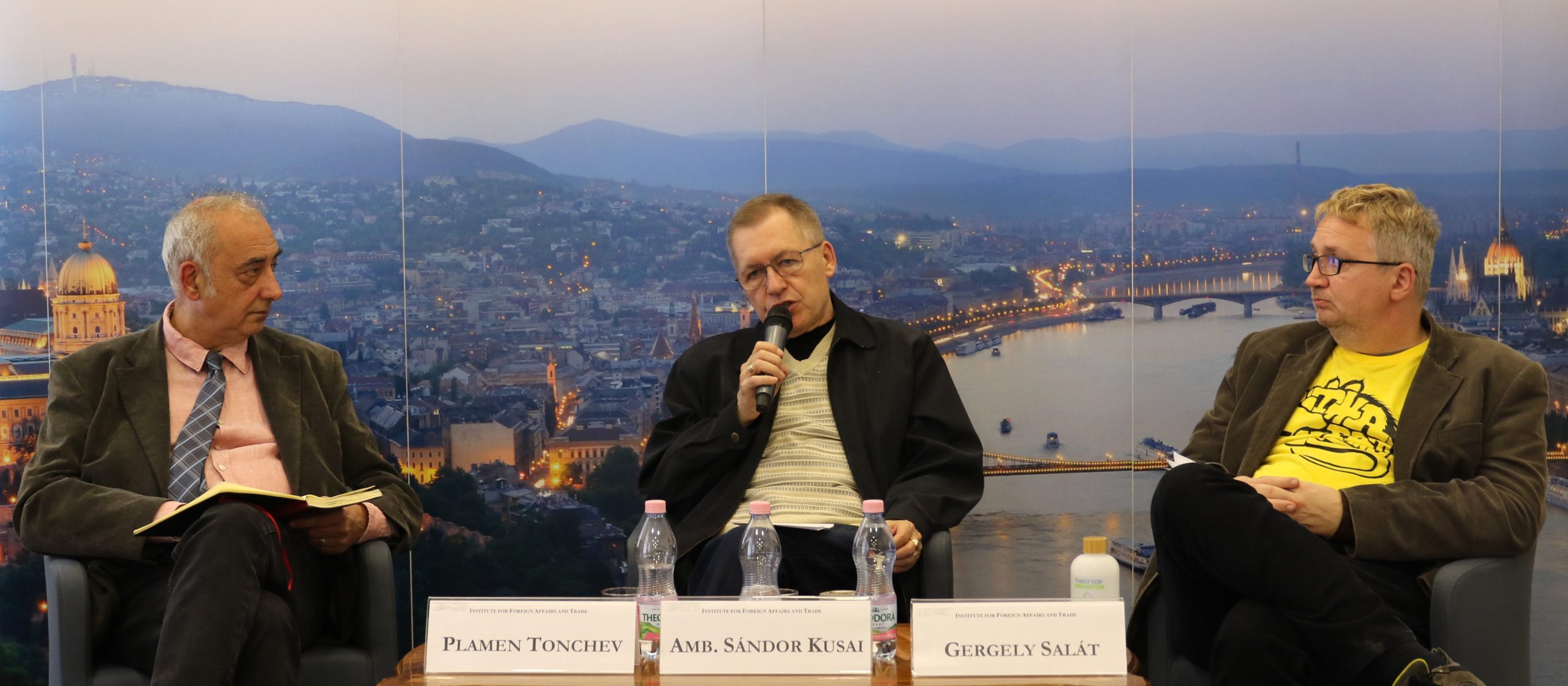On October 26th 2022, the Institute for Foreign Affairs and Trade hosted a roundtable discussion titled: “China’s 20th Party Congress and its implications for global politics” with Plamen Tonchev, European China Policy Fellow at the Mercator Institute as well as head of the Asia Unit at the Institute of International Economic Relations in Greece, and Sándor Kusai, former Ambassador of Hungary to the People’s Republic of China. The discussion was moderated by Gergely Salát, Senior Research Fellow at IFAT.
According to Professor Tonchev the main takeaway from the congress is the end of collective leadership, the removal of “counterweights” from power such as former Premier Li Keqiang, and Xi Jinping achieving absolute power. China now has three priorities: the modernization of the Chinese state and reaching “Common Prosperity”, the strengthening of the Communist Party as the sole political force and cultivating a fighting spirit to combat internal and also external challenges. The Chinese economy faces major headwinds domestically such as the real estate bubble, or the slowing of productivity-growth. While Beijing is worried about the US abandoning its strategic ambiguity with regards to Taiwan, in the context of its economic challenges, there may be a general mismatch between China’s global ambitions, and what it can deliver. Ambassador Kusai also highlighted the decrease in factionalism within the Party, however with regards to Xi’s third term, it is important to note that the term limits themselves were a relatively new development, and in a way, Xi Jinping is restoring the Party to a form closer to its roots. The report suggests a paramount role for Xi and the Party, a holistic view on security that includes economic and technological security, an aim to reduce “social differentiation” or inequality, and the centrality of the Taiwan issue and competition with the United States for years to come.
Photos by: Institute for Foreign Affairs and Trade (IFAT)

